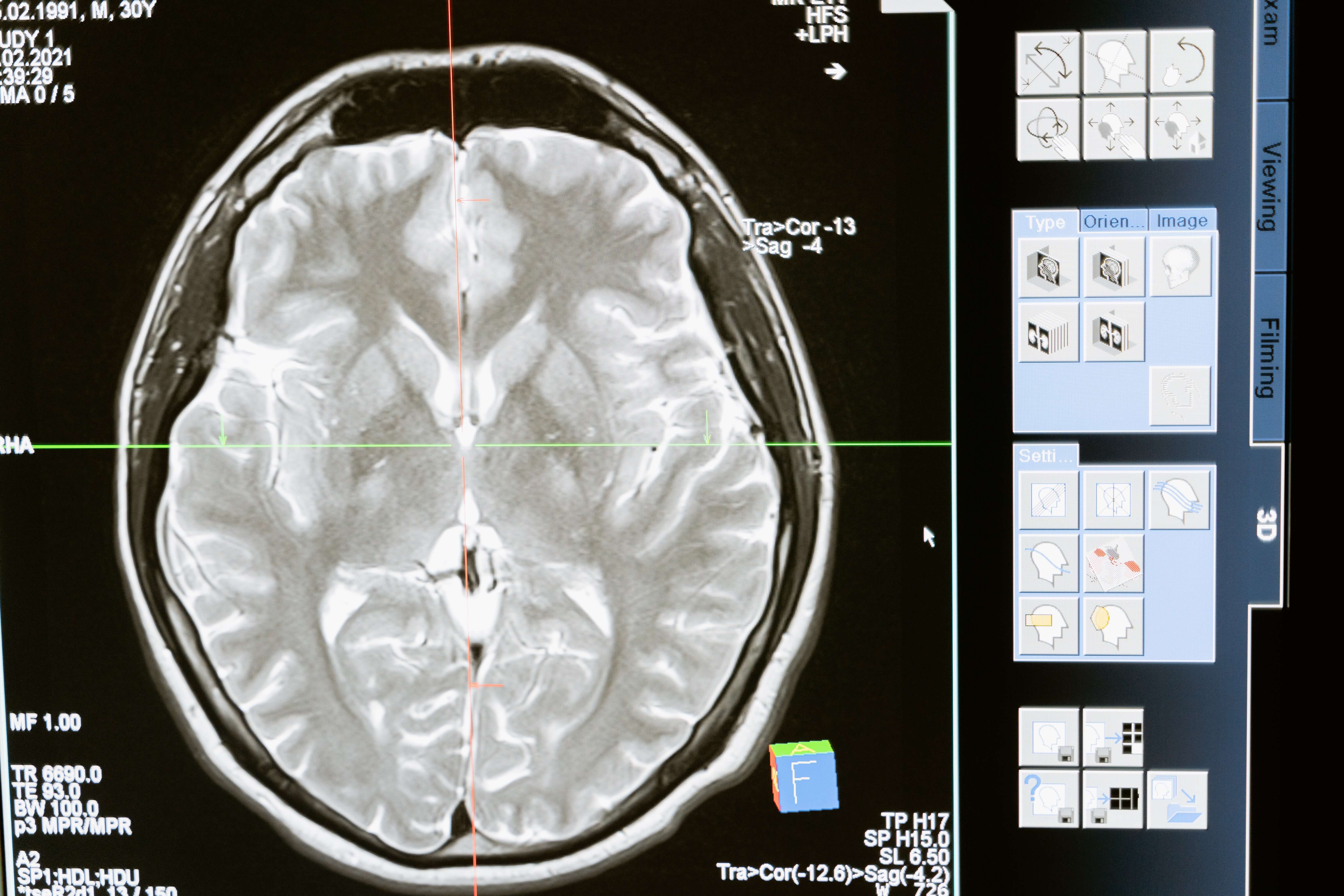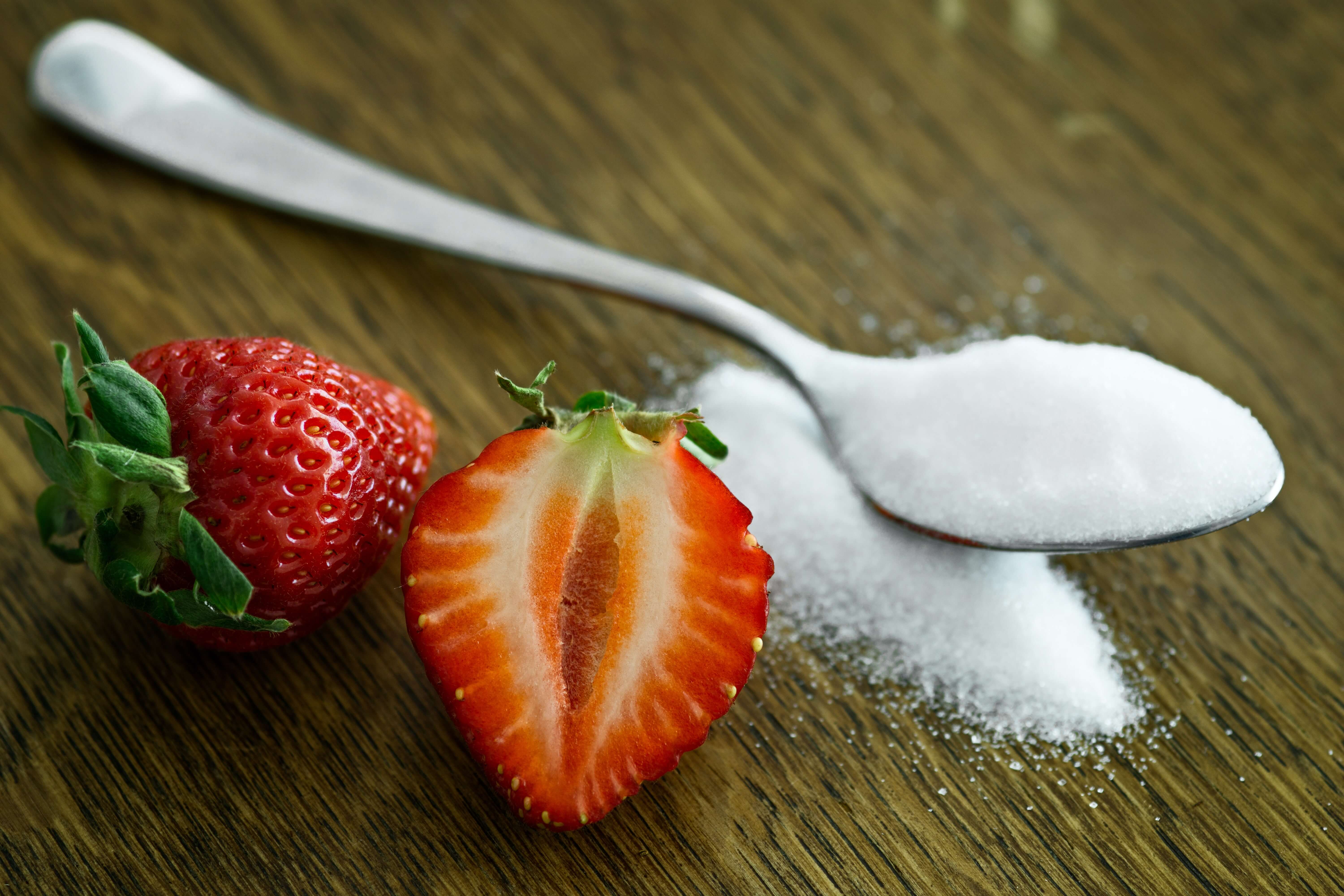Sugar - the Socially Accepted Heroin8 min read
8 min read

Share This Article on Social Media
Do you have a sweet tooth? You’re not alone, most of us will overindulge in sugar every once in a while. But what are the effects of sugar on our brain and body really?
Americans consume up to 3 times the recommended amount of sugar each and every day. For women, the recommended maximum is about 5-6tsp, and for men it is 9tsp.
You might know the feeling, you eat a bite of something sweet and all of a sudden you can’t stop.
This has a very real, scientific background and you can actually get addicted to sugar the way you get addicted to drugs.
In early humans, this craving for sugar led them to calorie-dense food, which was necessary for survival. Nowadays we are not on the verge of starvation, and this primitive drive contributes to an epidemic of obesity and diabetes.
The effects of sugar on the brain
When you eat sugar, your brain gets a giant rush of a feel-good chemical called dopamine. This makes you crave candy a lot more than, say, fruit for example because whole foods tend to have more gradual and sustainable energy and don’t cause the brain to release as much dopamine.
Just as with any other drug, the brain will need increasingly more levels of sugar to reach the same “high” of dopamine.
But what does this excess sugar intake do to our brains?
Excess sugar will impair both our cognitive skills and our self-control.

How sugar affects memory
Excess sugar is harmful throughout the body. Every instance of elevated levels of glucose in the bloodstream can have harmful effects on the brain.
This can result in slow cognitive function, (cognitive function is our general mental capability involving reasoning, problem-solving, planning, abstract thinking, complex idea comprehension, and learning from experience) and memory and attention deficits.
Studies suggest that a high intake of sugar may lead to inflammation in the brain, which leads to difficulties with memory.
How sugar affects your mood
In healthy, young people the ability to process emotions is affected negatively by elevated blood sugar levels.
A Study found that higher levels of blood glucose were linked to a greater incidence of depression.
In this study, they found that those with the highest consumption of sugar were 23% more likely to suffer from a mental illness than those with lower levels of sugar consumption.
How sugar affects your Mental Capacity
Frequent exposure to high levels of blood sugar in diabetics diminishes mental capacity and is associated with a greater degree of brain shrinkage, according to this study.
But even in those without diabetes, high consumption of sugar has been linked to lower test scores on cognitive function. These effects may be due to a combination of, hypertension, hyperglycemia, insulin resistance, and elevated cholesterol.
The effects of Sugar on the Body

Consuming an excessive amount of sugar can have a negative impact on our entire body.
Let’s look at the effect of Sugar in more detail:
Your teeth
You might have not believed it as a child, but sugar and candy can really rot your teeth. The bacteria that cause cavities love sugar as much as we do, and will adore the residue of sugar in your mouth after you eat something sweet.
Your joints
Sugar causes inflammation throughout your body. If you already suffer from joint pain, this might be a good reason to cut back on the sweet goodness, as it can worsen the pain. High levels of sugar consumption can also increase your risk of developing rheumatoid arthritis.
Your skin
You might have noticed a correlation between eating too much sugar and breaking out. This is due to the inflammatory properties sugar has.
But it can also make your skin age faster! Excess sugar can attach to proteins in your blood and create molecules called “AGE’s” (Advanced Glycation End products). They do exactly what you would think they do from their name - make your skin age. How? By damaging the parts that keep your skin firm and youthful.
Your liver
Too much added sugar can damage the liver. When it is broken down in the liver it gets transformed into fat.
This excess of fat can cause Non-alcoholic fatty liver disease (NAFLD) and Non-alcoholic steatohepatitis (NASH). Over time, these diseases might develop into cirrhosis and need a liver transplant.
Your heart
The excess sugar in your blood can affect the arteries in your entire body. What happens is that little cells eat the excess sugar in your blood, overeat, die and calcify on your artery walls. The walls will get thicker and it will be harder for your heart to pump the same amount of blood through them.
This can lead to heart failure, heart attacks, and strokes.
On top of that, reducing sugar can also help lower your blood pressure, which is another factor in heart disease.
People who eat a lot of added sugar run twice the risk of dying from heart disease as those with a lower sugar intake.
Your pancreas
It is widely known that a high intake of added sugars is linked to Diabetes. But why?
If you eat too much sugar, your insulin receptors will gradually decrease due to the abundance of glucose in your blood. This means that more sugar will stay in the blood instead of being absorbed.
The result is Diabetes Type 2. Having a strict diet can improve your receptor density again and combat this type of Diabetes.
Do you have a sugar addiction?

Now, eating sugar is not bad. In fact, we NEED it to survive and many healthy foods are rich in natural sugars.
The problem is both the lack of moderation and the amount of added, unhealthy sugars that we consume throughout our days.
But there is a difference between loving sweets and having an actual sugar addiction. Here are 8 signs you might suffer from the latter:
- You need more and more sugar to satisfy your cravings
- You eat sugary foods or foods high in carbohydrates even when you’re not hungry
- You ALWAYS crave sweets
- You try to quit and have unusual symptoms (headaches, feeling tired, muscle pain, nausea, bloating, etc)
- You use sugar to soothe yourself and your emotions
- You know the potential consequences and eat sugar anyway
- You go out of your way to have sugar (late-night trips to the store etc)
- You feel guilty about eating sugar
Now, if many of these seem to sound familiar to you, don’t despair!
How to break a sugar addiction
Don’t try to eliminate all sugary foods at once. Going cold turkey might backfire and cause you to crave sugar even more.
Eat a healthy diet full of whole grains, fruit, vegetables, healthy oils and fats, and protein. The more you implement these foods, the more they will even out your blood sugar levels and keep you satisfied for longer.
Here are a few other tips that might help you kick this habit:
Keep the sugar away: don’t tempt yourself by having loads of candy and chocolate in the pantry. Replace these foods with fruit instead.
Know the difference between a craving and hunger: ask yourself a simple question when you get a craving for sugar: if all I had to eat was an apple right now, would I eat it? If the answer is no, you are most probably not hungry, and simply craving a sugar rush.
Get more sleep: being sleep-deprived can make us crave sugar even more
Watch out for added sugars: you’d be surprised how many savory foods actually have tons of sugar in them. Sugar can be found in 74% of packaged foods!
Drink more water: water will not only help curb your cravings a little, oftentimes people confuse thirst with hunger! So next time you crave something sweet, have a glass of water first and see if you still want it afterward!
Conclusion
Sugar is everywhere. And although the sweet substance is not all bad and evil (in fact we desperately need it for survival), we do need to be careful with the amount of added sugar we consume.
It can be highly addictive, and excess consumption of sugar can have tremendously horrible effects on our health, both physically and mentally.
If you suspect you have a sugar addiction, try the tips mentioned to not depend on the white sweetener as much.
When in doubt, always consult with your doctor about possible remedies!




